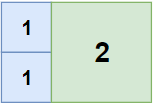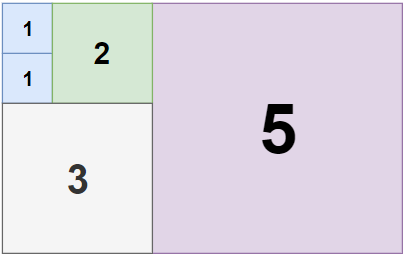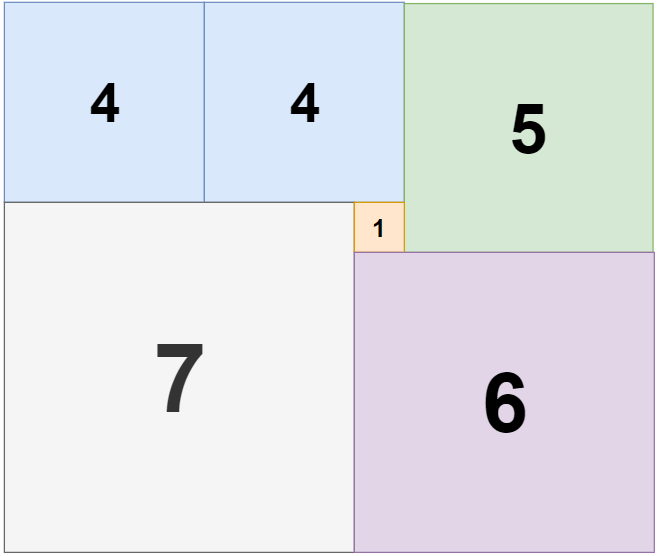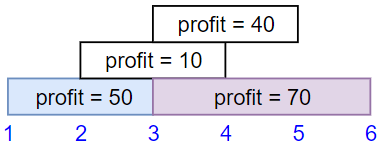You have a pointer at index 0 in an array of size arrLen. At each step, you can move 1 position to the left, 1 position to the right in the array or stay in the same place (The pointer should not be placed outside the array at any time).
Given two integers steps and arrLen, return the number of ways such that your pointer still at index 0 after exactly steps steps.
Since the answer may be too large, return it modulo 10^9 + 7.
Example 1:
Input: steps = 3, arrLen = 2 Output: 4 Explanation: There are 4 differents ways to stay at index 0 after 3 steps. Right, Left, Stay Stay, Right, Left Right, Stay, Left Stay, Stay, Stay
Example 2:
Input: steps = 2, arrLen = 4 Output: 2 Explanation: There are 2 differents ways to stay at index 0 after 2 steps Right, Left Stay, Stay
Example 3:
Input: steps = 4, arrLen = 2 Output: 8
Constraints:
1 <= steps <= 5001 <= arrLen <= 10^6
Solution: DP
Since we can move at most steps, we can reduce the arrLen to min(arrLen, steps + 1).
dp[i][j] = dp[i-1][j – 1] + dp[i-1][j] + dp[i-1][j+1] // sum of right, stay, left
Time complexity: O(steps * steps)
Space complexity: O(steps)
C++
|
1 2 3 4 5 6 7 8 9 10 11 12 13 14 15 16 17 18 19 20 |
// Author: Huahua class Solution { public: int numWays(int steps, int arrLen) { const int kMod = 1e9 + 7; arrLen = min(steps + 1, arrLen); vector<int> dp(arrLen); dp[0] = 1; for (int i = 0; i < steps; ++i) { vector<int> tmp(dp.size()); for (int j = 0; j < arrLen; ++j) { tmp[j] = dp[j]; if (j > 0) tmp[j] = (tmp[j] + dp[j - 1]) % kMod; if (j < arrLen - 1) tmp[j] = (tmp[j] + dp[j + 1]) % kMod; } swap(dp, tmp); } return dp[0]; } }; |





